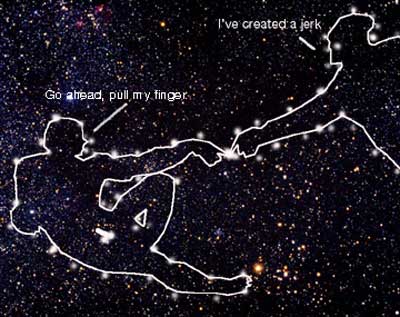
©2004 UrbisMedia
There are other approaches to communing with Nature than by the Xtreme Sportsman’s bravado of showing it “who’s the boss.” Dominating Nature, if it is ever achievable, is a momentary exhilaration. Those who do not get their thrills from “conquering” Nature can get them from natural wonders, what might be called the “wow effect”—to encounter Nature at some remove, to see it in all its grandeur, majesty, immensity, and power. The primary exertion is to summon superlatives equal to the height of a Hawaiian waterfall, the vastness of the Sahara, the depth of the Grand Canyon, the colors of a coral reef or the power of a breaching humpback whale. But often the most common utterance at such natural wonders is the simple, if apt, “WOW!”
But is this “communing” with nature? As I see it, Nature doesn’t “commune,” it just does pretty much what, to be somewhat tautological, Nature pleases. It asks no quarter and gives no quarter. It can delight or kill us with equal indifference. Nature does a lot of things, but it doesn’t commune. Communing is our idea, our way of perhaps expressing the subliminal fear that we have somehow lost touch with or natural past, or our guilt over the mess we have made of much of the natural environment. Mother Nature can get a little bitchy when we don’t write or call, when we just take her for granted.
Look at a mountain. It represents eons of time, compressing our little insignificant lifetimes into the comparative span of a mayfly. Nature inevitably prompts in me thoughts of mortality. The ocean, in particular, does just that. A walk on the beach can be like a ride on existential surf. The ceaseless waves seem to be repeating: we’ve been doing this long before you were here, and we’ll be doing it long after your gone, dude. The beach becomes the sands of time, and every bit of washed up coral, sea shell, or rotting sea creature is a memento mori . The sea and the mountains are humility inducing, and maybe some of that is a good thing for us arrogant humans. And if the sea and the mountains have this effect on you, don’t ever look up into a clear night sky.
Alfred North Whitehead observed that: “Time is in Nature”; not the reverse. Therefore, we can only measure time by the changes in nature, which elucidate another difficulty I have in communing with Nature.
Consider a photograph of the sea, or a mountain. Unless it is a daguerrotype, or a scratchy old black and white shot, one would have difficulty dating the photo. Its subject matter offers no indication; being relatively “timeless,” it might have been taken a millennium ago or yesterday (only the comparative occurrence of changes in the photographic process itself “approximates” the time of the photo). When I hear that a redwood tree is 500 years old it is somewhat meaningless to me until I “translate” the years in “human” terms. That the tree was a sapling when Leonardo Da Vinci was painting the Mona Lisa has more meaning for me than the bare numbers.
However much we think we may be able to commune with Nature, its purpose, its plan, however it got there, wherever it is going, has eluded us. We may assign origins and destinations to Nature, but they are, however rationally-contrived or mystically-conjured, mere creations of our own. We may inspect it, dissect it, or just play around in it, but our communing with nature is with an autistic, indifferent partner.
Nature doesn’t regard us with the same “superiority” we assign to ourselves. We may have achieved some deliberate “interaction” with Nature as science has revealed some of its mechanisms and behaviors, but each “discovery” and achievement is wrapped in layers of greater mysteries and enigmas. And Nature seems to find occasional cause, or necessity, to teach us some humility, whether with earthquakes or viruses. In Nature, plate techtonics and virulent bugs have equal rights with us.
Consider, too, that most Science Fiction dealing with nature—giant tarantulas, goofy Godzilla monsters, oversized apes with a ‘thing’ for blondes, fanciful extra-terrestrials that look like fetuses or preying mantises—these are more extensions of our fears and imaginations than our understanding of Nature. The science fiction writer or special effects designer is made to look a rank amateur against the evolutionary adaptations in a single drop of sea water.
The most recent human affront to Nature has been the success of Survivor television programs. There is a perverse genius in the producers who came up with the idea of putting a group of greedy, self-absorbed, socially-vicious a**h***s in a jungle and encouraging them to perform in a manner that, had they been the first humans a millions or so years ago, the world would now be ruled by kindlier and more amiable rats and roaches. Instead, the idea behind such programs is to determine, with the prospect of emerging from the show with a million bucks to the lone survivor, who might be willing to eat a roasted rat, or snack on a fist-full of roaches. Now that’s entertainment!
Mother Nature must be getting a real chuckle out of that one.
___________________________________
©2004, James A. Clapp (UrbisMedia Ltd. Pub. 10.06.2004)
